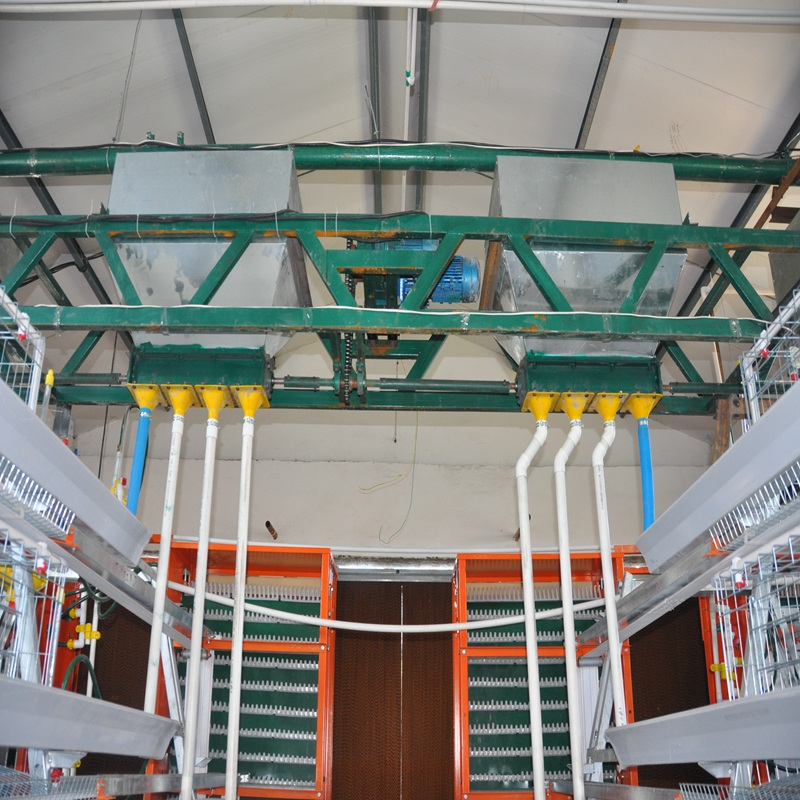feed mill mixer
វិច្ឆិកា . 12, 2024 08:49 Back to list
feed mill mixer
Understanding Feed Mill Mixers An Essential Component in Animal Nutrition
In the modern agricultural landscape, the importance of efficient and effective feed production cannot be overstated. As livestock production continues to grow globally, so does the need for high-quality animal feed. One of the critical components in the manufacturing of animal feed is the feed mill mixer. This essential piece of equipment plays a fundamental role in ensuring that the feed is properly mixed, which directly impacts the health and productivity of livestock.
What is a Feed Mill Mixer?
A feed mill mixer is a machine designed to combine various ingredients into a uniform mixture, which is crucial for producing balanced animal feed. Feed may consist of grains, protein supplements, vitamins, minerals, and other additives. The mixer allows for these components to be blended in appropriate ratios to meet the nutritional requirements of different animal species. A well-mixed feed ensures that each animal receives adequate nutrients, leading to improved growth rates, better feed efficiency, and healthier animals.
Types of Feed Mill Mixers
There are several types of feed mill mixers, each designed to meet specific needs
1. Horizontal Mixers These mixers are characterized by their horizontal design, which allows for efficient mixing of ingredients. The mixing process typically involves the use of paddles or ribbons that move through the material, ensuring thorough integration. Horizontal mixers are popular due to their short mixing times and ability to produce a homogeneous feed.
2. Vertical Mixers As the name suggests, vertical mixers have a vertical orientation. They make use of a central shaft equipped with various mixing arms. Vertical mixers are advantageous for smaller operations or those requiring batch processing. They are particularly suitable for mixing lightweight ingredients.
3. Batch Mixers Batch mixers operate on a fixed quantity of materials in each mixing cycle. This method is ideal for producing specialty feeds or when precise formulation is necessary. Batch mixing allows for flexibility in feed formulation but can be more time-consuming compared to continuous mixers.
feed mill mixer

4. Continuous Mixers These mixers provide a continuous flow of materials, leading to a more efficient mixing process. They are ideal for large-scale feed production as they can handle high volumes of ingredients with minimal downtime.
The Importance of Proper Mixing
The process of mixing is crucial in the production of animal feed. Inadequate mixing can lead to nutrient imbalances, which can adversely affect animal health and overall productivity. For instance, if an ingredient is not evenly mixed, some animals may receive too much of certain nutrients, leading to health issues, while others may receive too little, impacting their growth and development.
Moreover, the consistency of the feed plays a significant role in palatability and overall feed acceptance by animals. Properly mixed feed not only ensures nutritional adequacy but also enhances the animal’s willingness to consume the diet. Feed that is well-mixed leads to better digestion and nutrient absorption, ultimately supporting the animal's performance.
Maintenance and Operation
To ensure that feed mill mixers function efficiently, regular maintenance is essential. Operators should routinely check for wear and tear, particularly on mixing blades and shafts. Additionally, keeping the mixer clean can prevent contamination of the feed and ensure that all ingredients are properly integrated without residue from previous batches affecting subsequent mixes.
Furthermore, operators should be adequately trained on the proper operation of mixers. Understanding how to achieve the best mixing efficiency while monitoring the input and output can lead to optimized feed quality and better overall performance from the livestock.
Conclusion
In conclusion, feed mill mixers are indispensable in the production of animal feed. Their role in ensuring uniformity in diet formulation cannot be overlooked, as this directly impacts animal health and productivity. As the agricultural sector continues to evolve, the need for efficient feed mill mixers will remain a key focus in enhancing animal nutrition and supporting sustainable livestock production. Investing in high-quality mixers and maintaining them properly will pave the way for a healthier and more productive future in animal agriculture.
-
High Performance Exhaust Fan – Efficient Ventilation Solutions for Home
NewsJun.10,2025
-
High-Quality Gestation Pen for Sows Durable Mobile Pig Pen & Simple Pig Pen Solutions
NewsJun.10,2025
-
High Quality Rabbit Cage Double Tier Designs & Welded Wire Mesh Supplier
NewsJun.10,2025
-
Floating Fish Feed Machine - High Efficiency Floating Fish Feed Extruder for Small Scale Production
NewsJun.10,2025
-
Premium Poultry Housing Solutions Mobile & Commercial Free Range Options
NewsJun.10,2025
-
Industrial FRP Fans Corrosion-Resistant Blades & Centrifugal Systems
NewsJun.09,2025






